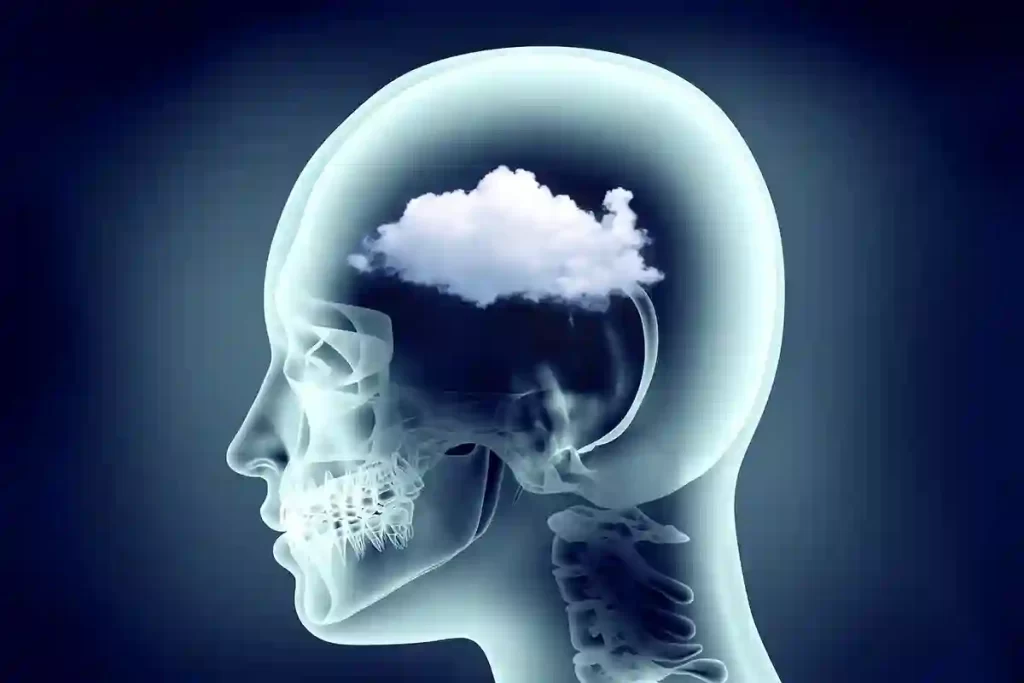Brain fog can feel like a mental block, making it difficult to concentrate, recall information, or stay motivated. It’s a condition often linked to stress or lack of sleep, but research increasingly points to the gut-brain connection as a root cause. Addressing gut health and brain fog through diet, lifestyle, and targeted treatments may be the key to restoring mental clarity and improving overall health.
What is Brain Fog?
Brain fog refers to cognitive deficits that affect focus, memory, and mental sharpness. While not a medical diagnosis, it is a term widely used to describe the experience of mental fatigue. Brain fog can result from various triggers, including stress response, hormonal imbalances, and chronic inflammation.
The Gut-Brain Connection
The gut-brain connection is a complex communication system linking the gut and brain through the enteric nervous system (ENS), vagus nerve, and gut hormones. This pathway plays a critical role in regulating emotions, cognition, and even immune function.
The communication between the brain and gut is a two-way street, with each influencing the other in significant ways. For instance, just thinking about food can prompt the stomach to release digestive enzymes. Similarly, a troubled gut can send warning signals to the brain, while mental stress can interfere with gut function. This continuous interaction underscores the importance of maintaining balance within the gut-brain axis to prevent issues like brain fog and cognitive dysfunction.
How Poor Gut Health Can Lead to Brain Fog
The intricate relationship between the gut and brain means that disruptions in one can directly affect the other. For example, irritable bowel syndrome (IBS), which impacts 5–10% of the global population, demonstrates this interplay. Notably, about one-third of IBS sufferers also report symptoms of anxiety or depression, suggesting that gut health and mental health are deeply intertwined. This connection is crucial to understanding how gut imbalances contribute to conditions like brain fog.
Common Gut-related Diseases that Cause Brain Fog
Certain gut-related conditions are closely linked to brain fog due to their impact on the gut-brain axis. These conditions often disrupt gut function, leading to gut microbiome imbalances, nutrient deficiencies, and systemic inflammation, all of which can affect cognitive function. Understanding these diseases is crucial for identifying the root cause of brain fog and tailoring effective treatments to improve both gut health and mental clarity. Below are some of the most common gut-related diseases associated with brain fog.
- Irritable Bowel Syndrome (IBS): Irritable bowel syndrome (IBS) is a chronic condition characterized by symptoms such as abdominal pain, bloating, and changes in bowel habits. It often results in gut bacteria dysbiosis and heightened sensitivity within the enteric nervous system, disrupting the gut-brain communication pathway. This can lead to not only digestive discomfort but also cognitive challenges like brain fog.
- Crohn’s Disease: Crohn’s disease, a type of inflammatory bowel disease (IBD), causes chronic inflammation in the gastrointestinal tract, which can lead to systemic inflammation and nutrient malabsorption. Conditions like vitamin B12 deficiency and intestinal inflammation are common in Crohn’s patients, directly affecting cognitive function and contributing to brain fog.
- Celiac Disease: Celiac disease is an autoimmune condition triggered by gluten consumption, causing damage to the small intestine. This can result in nutrient deficiencies, such as low levels of iron or vitamin B12, impairing brain function. Additionally, the immune response in celiac disease may promote neuroinflammation, further linking this condition to brain fog.
Strategies to Improve Gut Health and Clear Brain Fog

Addressing poor gut health and brain fog requires a multifaceted approach that targets both the root cause and its symptoms. Improving your gut health can enhance the gut-brain connection, reduce inflammation, and restore cognitive clarity. From dietary changes to lifestyle adjustments, these strategies are designed to balance the gut microbiome and support overall well-being. By taking a proactive approach, you can keep your gut healthy and optimize your mental function.
Best Diet for a Healthy Brain
Adopting an anti-inflammatory diet is one of the most effective ways to combat chronic inflammation and support both gut and brain health. Specific dietary approaches like the Low FODMAP Diet help reduce fermentable sugars that can worsen gut issues, while the Low Histamine Diet is beneficial for managing conditions like histamine intolerance, alleviating symptoms such as brain fog. An Elimination Diet can identify food sensitivities or intolerances that may disrupt the gut’s balance. Additionally, incorporating omega-3 fatty acids, high-fiber foods, and fermented foods can promote a healthy gut microbiome. Keeping a food and mood journal allows you to track how dietary changes influence your symptoms, making it easier to identify what works best for you.
Lifestyle Adjustments
Making lifestyle adjustments is essential for supporting the gut-brain axis and alleviating brain fog. Managing stress and improving sleep quality are key components of this process. Techniques like Cognitive Behavioral Therapy (CBT) can address the psychological impact of brain fog, helping to reduce stress and improve mental clarity. Additionally, incorporating mindfulness and relaxation techniques can regulate the stress response and enhance gut health through the activation of the vagus nerve, fostering better overall well-being.
Supplements
Supplements can play a vital role in addressing specific deficiencies and imbalances in the gut, helping to improve both gut health and mental clarity. Probiotics and prebiotics are particularly effective in promoting a healthy gut microbiome, restoring balance to gut bacteria. Taking vitamin B12 and performing micronutrient tests can help identify and correct nutrient deficiencies that may be contributing to brain fog. Additionally, anti-inflammatory supplements like curcumin and fish oil can reduce inflammation and enhance cognitive function, making them valuable tools in supporting overall health.
Consult a Healthcare Professional
When persistent brain fog and gut health issues interfere with your quality of life, seeking professional guidance is essential. A healthcare provider can perform advanced tests like microbiome analysis or a micronutrient test to uncover underlying imbalances. They can also recommend targeted treatments for conditions like small intestinal bacterial overgrowth (SIBO) or leaky gut, ensuring your treatment plan is tailored to your specific needs. With expert support, you can address gut-related concerns and regain mental clarity.
How Vitality Functional Family Medicine Can Help

At Functional Family Medicine, we specialize in addressing the root causes of health concerns, including the intricate relationship between gut health and brain fog. Our holistic approach focuses on personalized care, utilizing advanced diagnostics to uncover issues like gut microbiome imbalances, nutrient deficiencies, and chronic inflammation. Whether you’re struggling with brain fog, digestive issues, or overall well-being, our expert team is here to guide you toward optimal health with tailored treatment plans.
We offer tools like microbiome analysis, elimination diets, and stress management techniques to address conditions such as IBS, autoimmune conditions, and chronic stress. By focusing on restoring balance and reducing inflammation, we aim to optimize your gut-brain connection for lasting mental clarity and improved health. Ready to take the first step? Contact us today to start your journey toward a healthier, more balanced life.
Conclusion
Understanding how gut health affects the brain is crucial for addressing brain fog. By improving gut health through a combination of diet, lifestyle, and professional guidance, you can reduce chronic inflammation, improve cognitive function, and achieve lasting mental clarity. Start your journey to a healthier gut today to reclaim your focus and energy.
FAQs
Can gut issues cause brain fog?
Yes, conditions like IBS, leaky gut, and gut dysbiosis can disrupt the gut-brain communication pathway, leading to brain fog.
How do you fix an unhealthy gut?
Adopt an anti-inflammatory diet, manage stress, and consider supplements like probiotics. A micronutrient test can help address deficiencies.
How to heal the gut-brain?
Focus on reducing inflammation, balancing the microbiome, and supporting the gut-brain axis with therapies like CBT and dietary adjustments.

